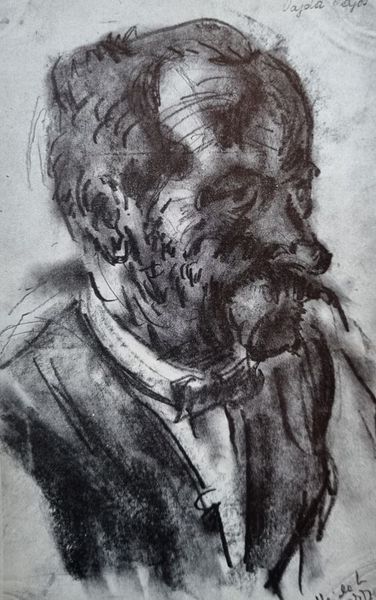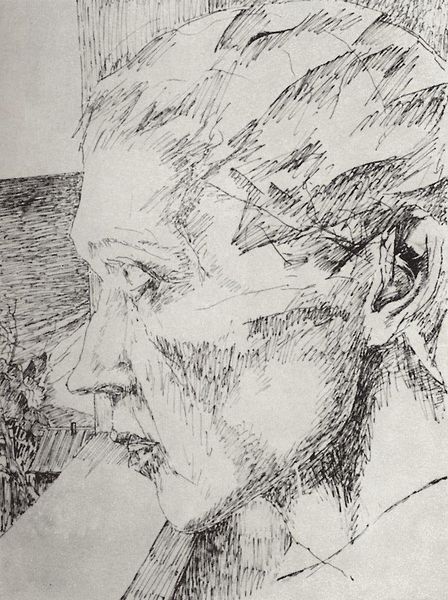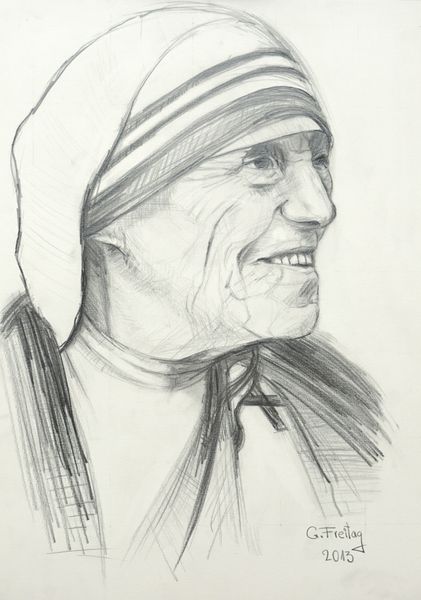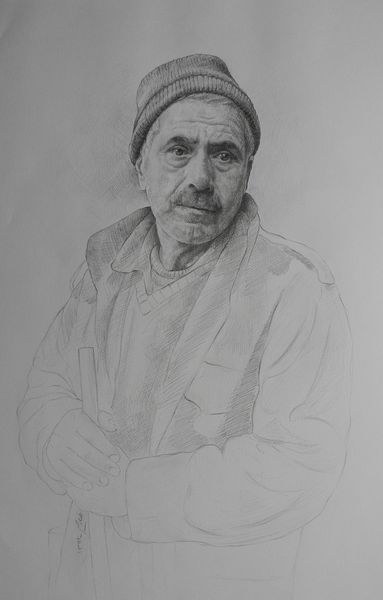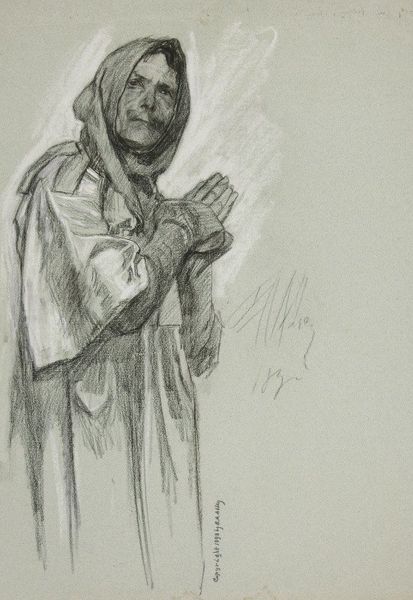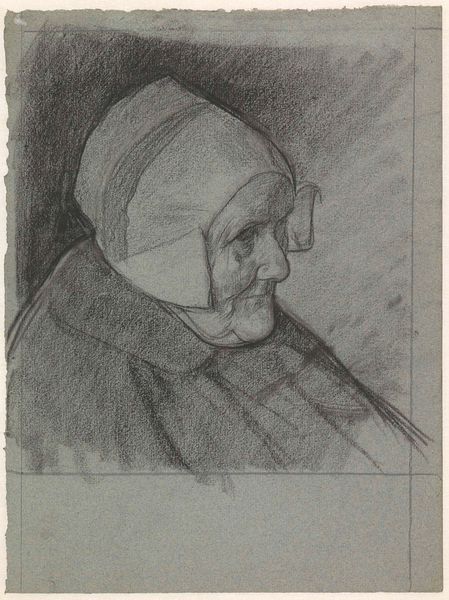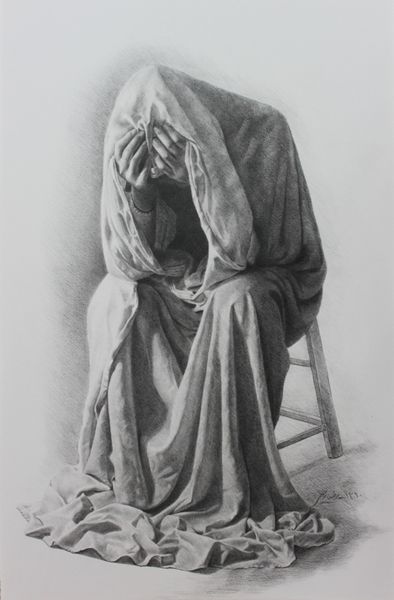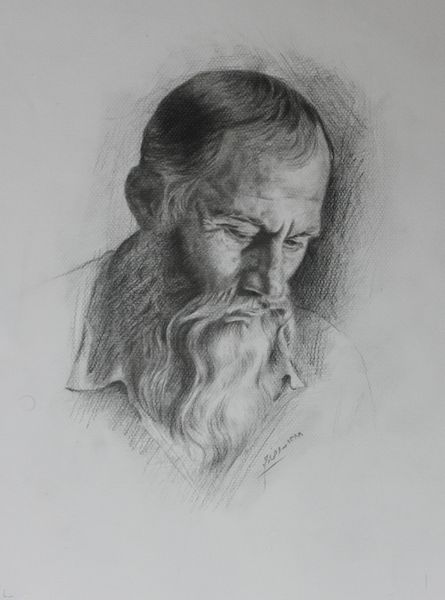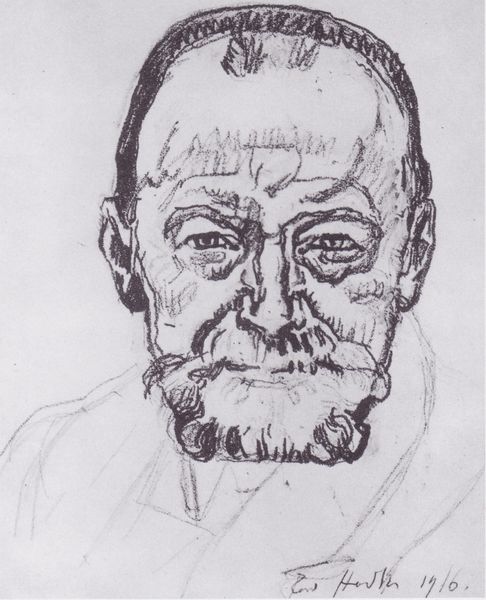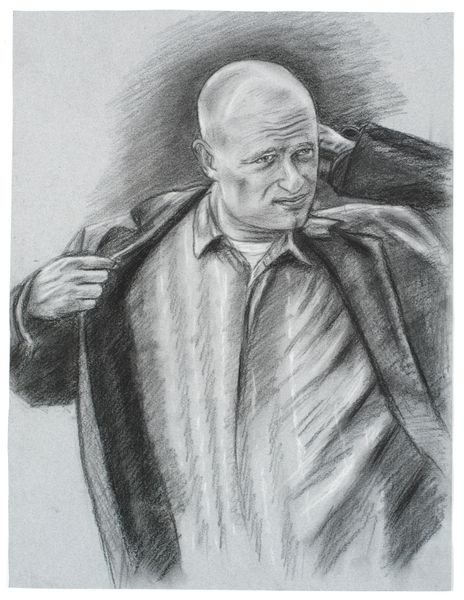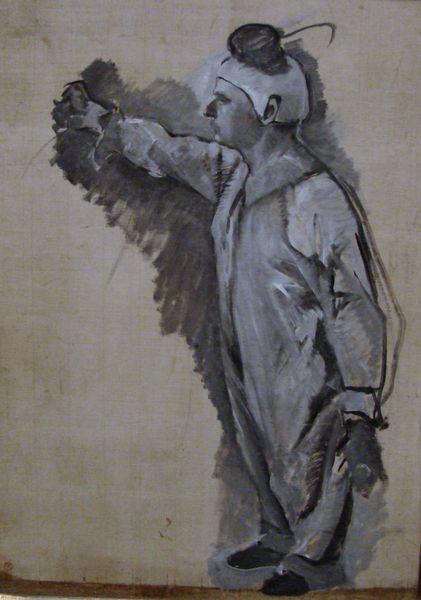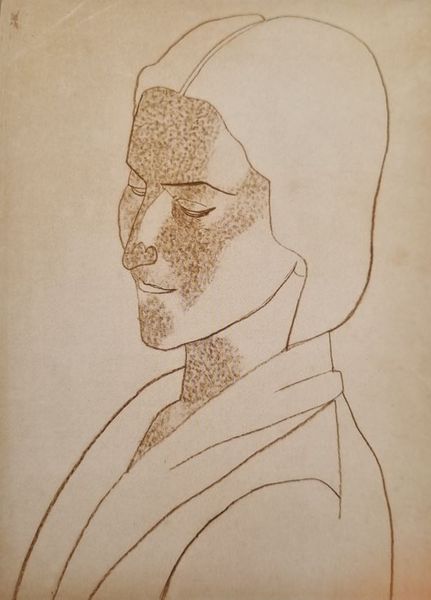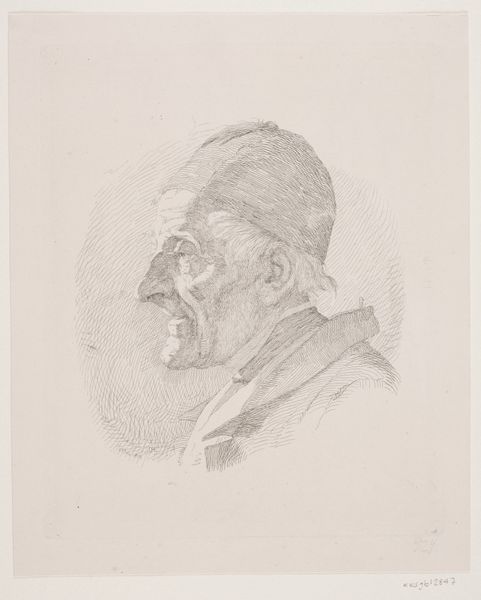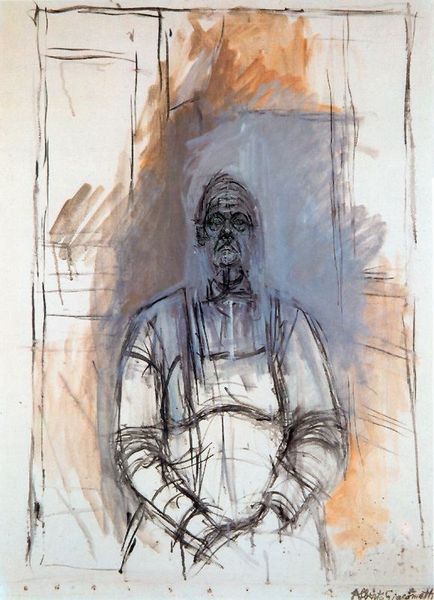
drawing, dry-media, graphite, charcoal
#
portrait
#
drawing
#
self-portrait
#
charcoal drawing
#
dry-media
#
pencil drawing
#
sketch
#
graphite
#
animal drawing portrait
#
portrait drawing
#
charcoal
#
realism
Dimensions: 40 x 30 cm
Copyright: Reza Rahimi Lasko,Fair Use
Curator: Let's spend a moment with "Street Sweeper," a charcoal drawing created by Reza Rahimi Lasko in 2001. Editor: It feels incredibly raw, almost like catching a glimpse of someone's soul in monochrome. The downward gaze… there’s such a weight to it. Curator: Indeed. Consider how portraiture, especially self-portraiture, throughout history serves as a kind of mirror. In some cultures, looking directly into one’s reflection carries deep symbolic implications. This work is perhaps a confrontation. Editor: Or maybe a shy avoidance? I see a portrait, yes, but also this overwhelming sense of fatigue, maybe resignation. The sketch-like quality only intensifies the emotion for me. It is like seeing the lines of time etched directly onto his face in graphite. Curator: And yet, what is fascinating, and perhaps even transgressive about a portrait that lacks ostentation, or romanticism, or any sense of celebration of self? This one is not gilded, it seems quite deliberately austere. We are forced to contemplate the internal world through the landscape of age. Editor: Austere but profoundly human. This isn’t just about the man’s job or his external circumstances; it's about the universal experience of weariness, of carrying burdens, both visible and invisible. I am touched by the way the artist lets us feel empathy towards such figure. Curator: The very fact that Rahimi names the artwork “Street Sweeper”, provides an access key. By imbuing an everyday subject with this deeply personal approach, he elevates an often-overlooked part of society, the "street sweeper," into something profound and worthy of contemplation. Editor: Absolutely. It's as if the simple act of documenting him in charcoal, in such stark, unadorned terms, is a form of quiet respect. This drawing captures the quiet dignity and resilience often unseen. Makes me think differently about portraiture and how deeply political it can be, even when silent. Curator: A wonderful point. The piece invites us to look at not just an image, but at the silent narratives around us every single day. Editor: It makes me want to stop and truly *see* people I pass on the street. And maybe, sketch them, if I dared.
Comments
No comments
Be the first to comment and join the conversation on the ultimate creative platform.
